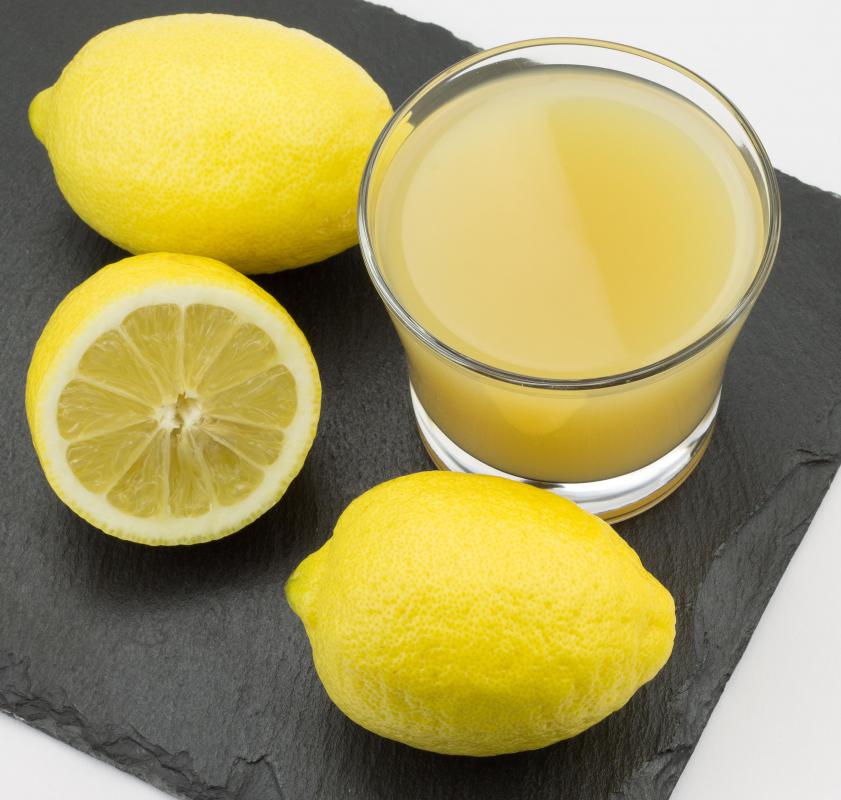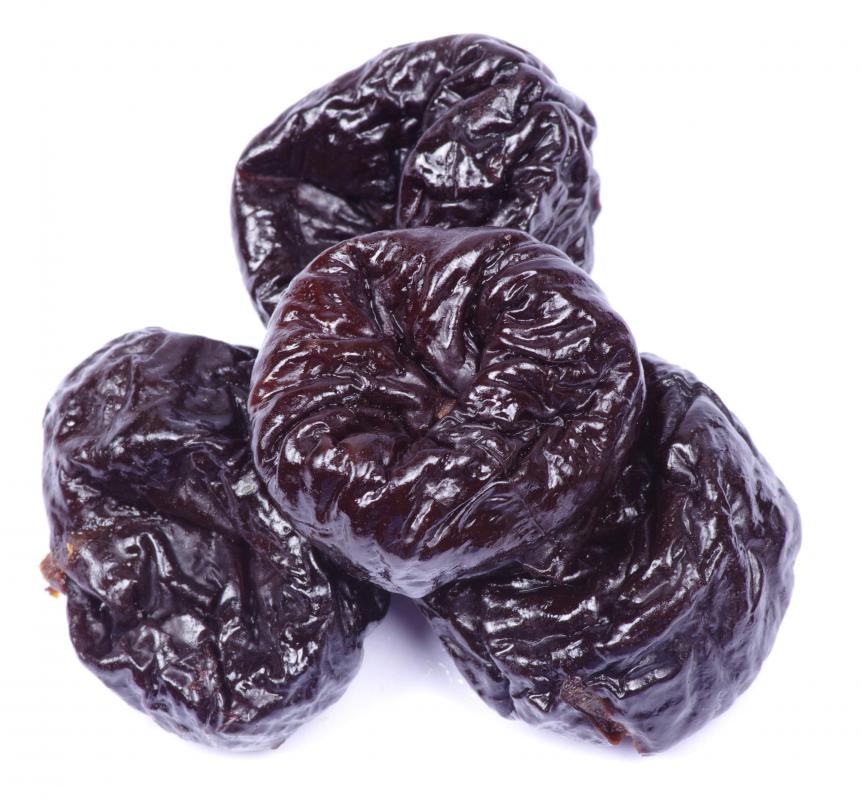At TheHealthBoard, we're committed to delivering accurate, trustworthy information. Our expert-authored content is rigorously fact-checked and sourced from credible authorities. Discover how we uphold the highest standards in providing you with reliable knowledge.
What are the Different Types of Deficiency Diseases?
Different types of deficiency diseases can be caused by insufficient intake and usage of iron or protein, and there are other diseases that occur when a person's diet lacks or is too low in a certain vitamin. Among the most well known of these are beriberi, pellagra, pernicious anemia, scurvy, rickets, and osteomalacia. Generally, such diseases can be treated successfully and even cured by ensuring that the nutritional needs of the body are met on a daily basis unless a person is fasting.
An iron deficiency can result if a person suffers significant blood loss, if a person has a diet poor in this mineral, or if a person's body has a decreased ability to absorb iron. A common form of anemia can usually be prevented by ingesting foods that are naturally high in iron, like legumes, molasses, whole heirloom grains such as spelt, and leafy green vegetables, preferably those that have been organically grown. Certain groups of people, such as women of childbearing age, have a higher risk of suffering iron deficiency. Among the symptoms of this condition are fatigue, pain in the chest and shortness of breath.

Protein deficiency diseases could be caused by a person's failure to consume sufficient amounts of high-quality protein, resulting in abnormal growth and maintenance of tissue. Wounds generally do not heal as quickly as they should in these individuals.
Most people are aware that scurvy can develop if the diet lacks ascorbic acid, or vitamin C. Eating fresh citrus fruits and a variety of fresh, organically grown vegetables is all that is required to prevent, treat or cure scurvy, which rarely is seen in industrialized nations. Pernicious anemia is a condition that can develop if a person's diet is lacking in vitamin B12, also known as cobalamin. Vegans run a considerably higher risk of developing pernicious anemia than do individuals who consume meat and dairy products. Those who have insufficient amounts of the protein known as the intrinsic factor also can develop pernicious anemia.

The deficiency diseases rickets in children and osteomalacia in adults can develop if they do not receive enough vitamin D, also called calciferol. Grains, fruits and vegetables, unfortunately, are poor sources of this nutrient, which can be formed in the skin when it is moderately exposed to sunlight. In some countries, such as the United States, milk often is fortified with vitamin D to help prevent these conditions.

Beriberi is a very serious disease that can prove quickly fatal in infants. It is caused by insufficient intake of vitamin B1 or thiamine. Rich food sources of this nutrient include whole grain rice, nuts and leafy green vegetables. In some nations, white rice is fortified with vitamin B1 to help prevent the development of beriberi.
Pellagra, a deadly disease, is caused by a diet deficient or lacking in vitamin B3 or niacin. Symptoms include diarrhea, depression, dermatitis, dementia, and finally death. This nutrient is abundantly provided in whole heirloom grains, nuts, seeds, bananas, figs, prunes, potatoes and legumes. Diseases caused by a deficiency of a nutrient, fortunately, usually are simple to treat and cure by supplying the body with the nutrients that it requires to maintain vital life functions.
AS FEATURED ON:
AS FEATURED ON:















Discussion Comments
I used to have an iron deficiency when I was younger. I had to take iron pills daily. If I didn't, I would be really tired all the time.
Eventually it went away, and I was able to stop taking the pills. It may have been a result of my diet improving, but there could be other explanations also.
I have heard that women can suffer from an iron deficiency during their menstrual cycle. The rest of the time they are fine though. This has nothing to do with diet, but with blood loss. So if you are experiencing extreme tiredness during this time of the month, you might want to talk to your doctor about it. You may be having temporary iron deficiencies. I know I'm always on the lookout for it.
I've heard that a vitamin D deficiency can lead to fatigue and depression, and that's why people sometimes get the "winter blues." It's a result of being out of the sun for the long winter months. During this time we don't get as much vitamin D from sunlight, and can then experience those symptoms.
It makes me wonder about sunscreen. We are told over and over to protect our skin from the sun, by using sunscreen or by just staying out of the sun altogether. But the sun gives us vitamin D. Obviously, staying out of the sun means we can't get the vitamin from it. But what about being in the sun with sunscreen on our skin? Can we still get the vitamin D?
I never really thought about the real necessity of the vitamins and minerals that we consume on a daily basis. I guess I've just taken it for granted as a result of living in an area where all of these are readily available in the foods we have every day.
For example, I never really thought about why vitamin D is added to milk. I just drink it and reap the benefits.
It's very good that all of these nutritional deficiency diseases are easily cured by getting enough of the nutrient into the person's diet. But what about people who live in areas where that's not as easy to do? It puts a whole new light on the idea of helping charities that make sure that people in areas like that have enough nutritional foods to eat.
Post your comments